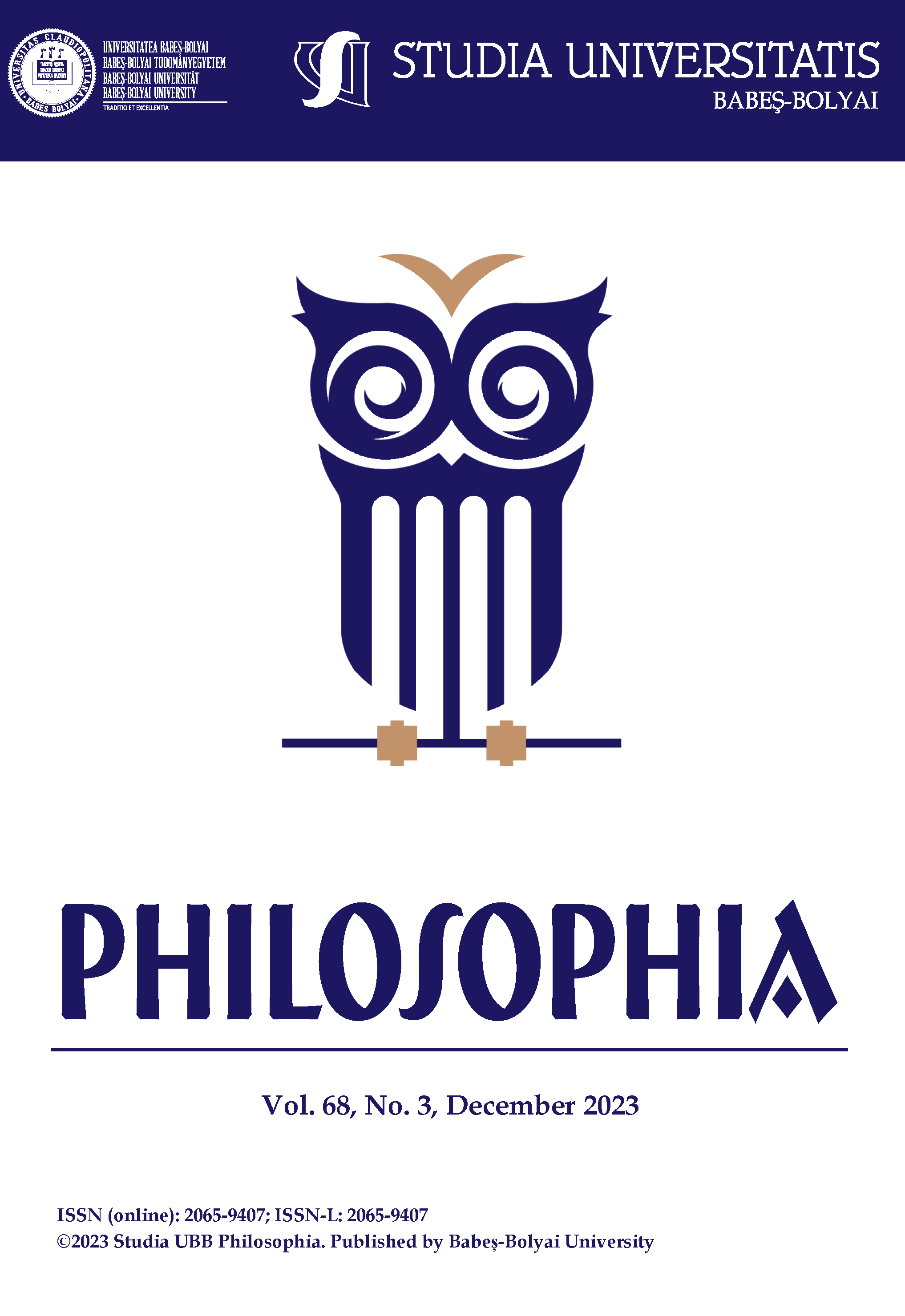The Study of Notes and Notebooks: Some Epistemological and Ontological Issues
DOI:
https://doi.org/10.24193/subbphil.2023.3.03Keywords:
notes, notebooks, cultural kind, cultural artefact, pattern, commonplace-bookAbstract
The aim of the present paper is to situate the recent attempts devoted to the study of the phenomena of knowledge management in a larger epistemological context. More precisely, I intend to ascertain the entire affair from the perspective of the philosophy of the humanities. This involves understanding it as an endeavor concerned with the search for regularities. As a result, key notions figuring in the repertoire of this kind of undertaking, primarily those of notes and notebooks, are scrutinized for the purpose of revealing their theoretical function. This points towards some ontological issues, such as the idea of taking notes as cultural kinds, namely something analogous to the idea of natural kinds.
References
Baneu, Alexandra. 2024. The Retrieval of Notes. Use of Tables in the Manuscripts of Étienne Gaudet. Berlin: De Gruyter (forthcoming).
Battaly, Heather. 2019. Intellectual Virtues and Knowledge in Hetherington, Stephen. Valaris, Markos. Knowledge in Contemporary Philosophy. London: Bloomsbury.
Bird, Alexander. 1998. Philosophy of Science. London & New York: Routledge.
Blair, Ann. 1992. “Humanist Methods in Natural Philosophy: The Commonplace Book”. Journal of the History of Ideas, 53 (4): 541-551.
Blair, Ann. 2010. Too much to Know. Managing Scholarly Information before the Modern Age. New Haven & London: Yale University Press.
Bod, Rens. 2013. A New History of the Humanities. The Search for Principles and Patterns from Antiquity to the Present. Oxford: Oxford University Press.
Bod, Rens. 2018. “Has There Ever Been a Divide? A Longue Durée Perspective”. History of Humanities 3 (1): 15-25.
Bouterse, Jeroen. Karstens, Bart. 2015. “A Diversity of Divisions: Tracing the History of the Demarcation between the Sciences and the Humanities”. Isis 106 (2): 341-352.
Cevolini, Alberto. 2016. Storing Expansions: Openness and Closure in Secondary Memories in Cevolini, Alberto. Forgetting Machines: Knowledge Management Evolution in Early Modern Europe. Boston: Brill.
Daston, Lorraine. 2011. The Empire of Observation, 1600 – 1800 in Daston, Lorraine. Lunbeck, Elizabeth. Histories of Scientific Observation. Chicago & London: The University of Chicago Press.
Ellis, Brian. 2008. Essentialism and Natural Kinds, in Psillos, Stathis. Curd, Martin. The Routledge Companion to the Philosophy of Science. London & New York: Routledge.
Jones, Caroline A. 2016. The Note in Doniger, Wendy. Galison, Peter. Neiman, Susan. What Reason Promises: Essays on Reason, Nature and History. Berlin & Boston: De Gruyter.
Yeo, Richard. 2007. “Between Memory and Paperbooks: Baconianism and Natural History in Seventeenth-Century England”. History of Science 45 (1): 1-46.
Yeo, Richard. 2014. Notebooks, English Virtuosi, and Early Modern Science. Chicago & London: The University of Chicago Press.
Heesen, Anke te. 2005. The Notebook. A Paper-Technology in Latour, Bruno. Weibel, Peter. Making Things Public. Atmospheres of Democracy. Cambridge: MIT Press.
Khalidi, Muhammad Ali. 2014. Natural Kinds in Humphreys, Paul. The Oxford Handbook of the Philosophy of Science. Oxford: Oxford University Press.
Kraemer, Fabian. 2014. “Ulisse Aldrovandi’s Pandechion Epistemonicon and the Use of Paper Technology in Renaissance Natural History”. Early Science and Medicine 19 (2014): 398-423.
Kraemer, Fabian. Zedelmaier, Helmut. 2014. “Instruments of invention in Renaissance Europe: The cases of Conrad Gesner and Ulisse Aldrovandi”. Intellectual History Review 24 (3): 321-341.
Leezenberg, Michiel. de Vries, Gerard. 2017. History and Philosophy of the Humanities. An Introduction. Amsterdam: Amsterdam University Press.
Peels, Rik. 2018. “Epistemic Values in the Humanities and in the Sciences”. History of Humanities, 3 (1): 89-111.
Pihlström, Sami. 2022. Toward a Pragmatist Philosophy of the Humanities. New York: SUNY Press.
Pomata, Gianna. Siraisi, Nancy. 2005. Empiricism and Erudition in Early Modern Europe. Cambridge, MA: MIT Press.
Stolberg, Michael. 2014. “John Locke’s ‘New Method of Making Commonplace-Books’: Tradition, Innovation and Epistemic Effects”. Early Science and Medicine 19 (2014): 448-470.
Downloads
Published
How to Cite
Issue
Section
License
Copyright (c) 2023 Studia Universitatis Babeș-Bolyai Philosophia

This work is licensed under a Creative Commons Attribution-NonCommercial-NoDerivatives 4.0 International License.





